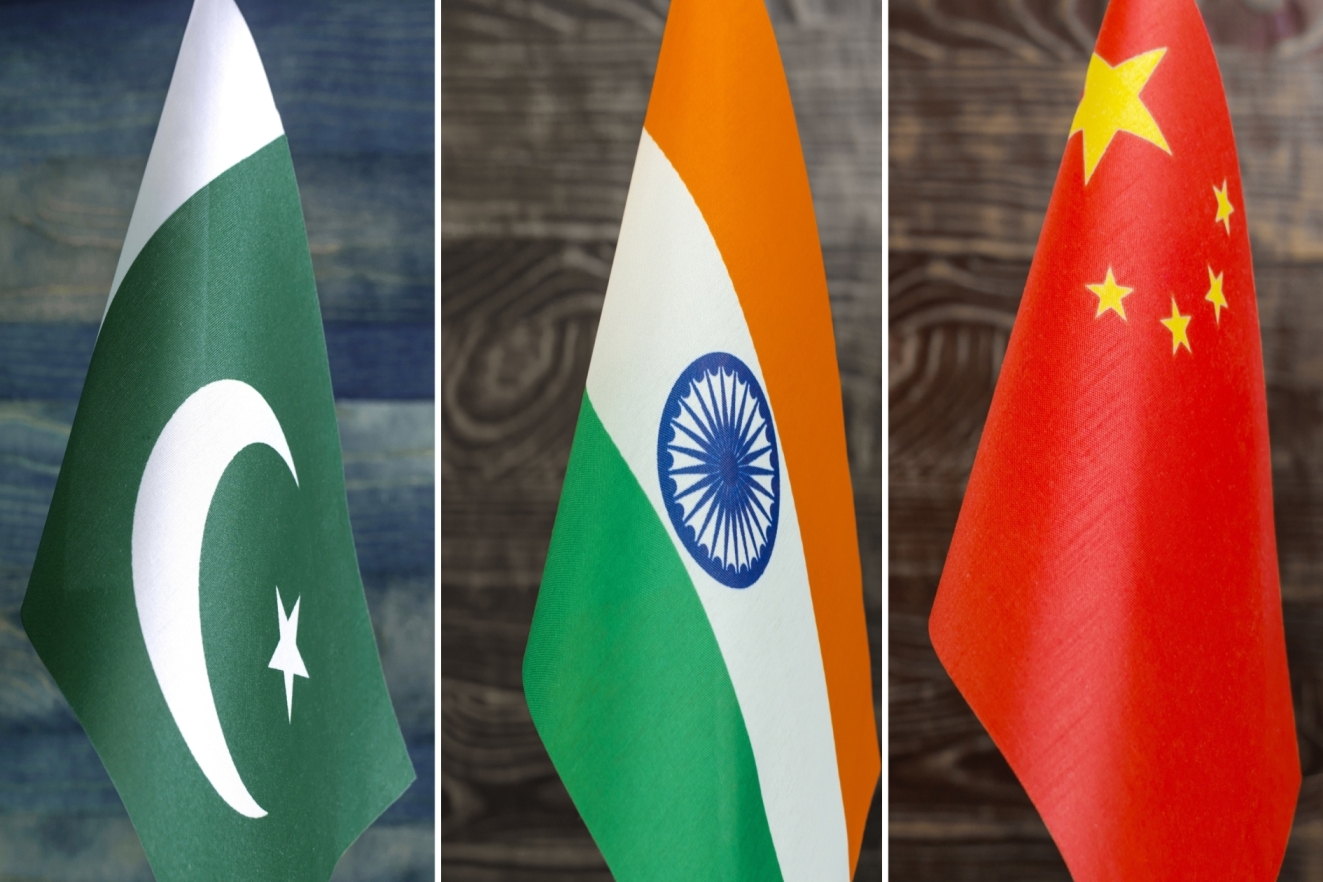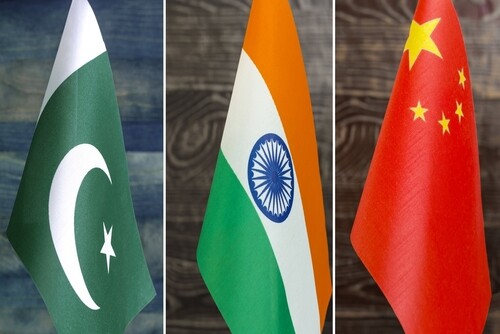Abstract: Pakistan’s National Security Policy (NSP) was released on January 14th, 2022. It outlines the nation’s aspirations and goals and includes vital aspects of a national policy such as human rights, zero-tolerance against terrorism, equality, and gender neutrality. Although the NSP is a commendable effort, it lacks clarity on many fronts. This article aims to discuss the document’s loopholes, identify the underlying causes of associated shortcomings and to test the feasibility of the document. Finally, this article examines whether the NSP meets Pakistan’s needs to address domestic issues and regional geopolitics.
Bottom-line-up-front: Pakistan’s NSP, a culmination of the annual reports by the Defence Forces at the National Defence University, covers all challenges faced by the country as well as their corresponding solutions. Despite the domestic turbulence that keeps Pakistan relatively isolated from regional affairs, the NSP considers the complementary nature of geopolitics over geoeconomics, and respects the values of democracy. It would be rational to argue that Pakistan’s NSP is treading on thin lines between perceptions and projections.
Problem statement: How can Pakistan overcome its past experiences in geopolitics and regional balancing? Is Pakistan wary of domestic challenges that may hinder its path to development?
So what?: Pakistan must revisit its regional and domestic policy, keeping aside its India centric approach. Instead, the national system must work towards national development in the field of health and education. Furthermore, in terms of foreign policy, Pakistan must have a neighbourhood friendly stance without prejudice. Ergo, it is imperative for Pakistan to reassess its relations and find a mutual path of co-existence in an intense geopolitical scenario. Pakistan’s policymakers and academicians can play a significant role in supporting the leadership through an objective execution plan.

Source: shutterstock.com/nau2018
On the 14th of January 2022, the Pakistani Government unveiled its National Security Policy[1] (NSP) hastily to its citizens, without introducing it in the parliament[2]. The NSP reflects a national strategy that sets the ball rolling for drafting various sectoral strategies. Additionally, the document highlights the nation’s foreign policy values, historical experience, and national traditions.
The NSP reflects a national strategy that sets the ball rolling for drafting various sectoral strategies. Additionally, the document highlights the nation’s foreign policy values, historical experience, and national traditions.
Moreover, given Pakistan’s historical background, including its intolerance towards non-Sunnis as per the 1954 Munir Commission Report[3], the NSP details Pakistan’s defensive foreign policy vis-à-vis its neighbours, especially India. Dr Kaplan (2019), in his introduction to Values in Foreign Policy, argues that a foreign policy is an ultimate extension of a country’s domestic conditions, hopes, dreams, and fears.[4]
It is precisely the fear of the Imran Khan government of loosing the elections that has pushed the National Security Division of Pakistan to yield a document that is not a policy but a summarisation of the last seven years of National Security Papers jointly written by officers at the National Defence University and Armed Forces War Course.[5]
The Framework of the NSP
The first NSP of Pakistan covers several issues and addresses both traditional and non-traditional security aspects (i.e., climate, gender, economics). It succinctly describes the co-relation and complementary nature of geoeconomics and geopolitics. Further, although it mentions political ideas of liberty, equality, human rights, and unity in diversity, it includes an evident and significant reference to “human welfare on the lines of Riyasat-e-Medina,” the Islamic version of a welfare state.[6] As a result, the religious rider effectively nullifies the tall promises (visions if you will), presented in the document. The NSP projects an image of citizen-centric governance and prosperity through trade and economy; however, it turns a blind eye towards omnipresent domestic issues in Pakistan. The government omits to discuss the Balochistan issue[7] and human rights violations against women and children.[8]
Although the NSP addresses the normalisation of relations with India, it indicates Pakistan’s preparedness for a hybrid war against India. Its mention of zero-tolerance for terrorism is an irrational statement, given that Pakistan has failed to contain the spreading tentacles of terrorism on its turf. On many occasions, Pakistan has shown reluctance about being actively involved with the South Asian Association for Regional Cooperation (SAARC). This is reflected in the NSP as well, wherein SAARC is only mentioned briefly while talking about geoeconomics and geopolitics.
Why now?
Given the unexpected announcement of the new NSP, the following questions arise: why has Pakistan decided to release the document now, and in so much haste, without consulting the opposition members and introducing it at the floor of the parliament? Furthermore, has it been able to provide enough deterrence against its opponents?
Some reasons for the above-mentioned haste are as follows:
First, India has become the chair of the United Nations Counter-Terrorism Committee[9]. Pakistan knew that India could and would work towards countering the terrorism emanating from Pakistani soil, which, in turn, would influence its ranking in the Financial Action Task Force (FATF). Pakistan is striving to get out of the FATFs grey list, which has had several repercussions on its Pakistani economy.[10]
Pakistan knew that India could and would work towards countering the terrorism emanating from Pakistani soil, which, in turn, would influence its ranking in the Financial Action Task Force.
Second, in 2021, Pakistan’s GDP was at 280 billion USD[11], which was surprisingly behind that of Bangladesh. Moreover, Pakistan has been facing issues with international financial entities like the World Bank and International Monetary Fund (IMF), who have raised questions regarding the nation’s expenditure on numerous occasions. Additionally, Pakistan’s trusted ally – China -, is demanding back 26-billion-Rupee (310 million Euro or 342 million USD) that was lent to Islamabad.[12]
Third, during the Intra-Afghan dialogue, Pakistan had one golden opportunity in 2021, where it could improve its image at the international forum. However, given the natural proximity between the Taliban and Pakistan’s military, it was unable to do so. This undoubtedly upset the United States and its allies. As such, Pakistan stands alone in the matter, and consequently, the President of the United States (POTUS) has not once invited former Prime Minister Imran Khan to the US or its Democracy Summit.[13] Likewise, the relationship between Saudi Arabia and Pakistan seems to be rough, especially after the rift during the Organisation of Islamic Cooperation (OIC) Foreign Minister Summit in December 2021[14].
Lastly, the sudden release of the NSP may be related to Pakistan’s preparation for a General Election in 2023.[15] Looking at the NSP from the perspective of the upcoming elections reveals that the document may be less of a policy for the nation than a party election manifesto for 2023. The pacifying tone in which the NSP is written shows that Imran Khan’s Pakistan Tehreek-e-Insaf (PTI) looks to please citizens from all sections of society (i.e., women, business class, religious minorities).
Pakistan suffers from domestic turbulence owing to constant protests from Tehrik-e-Labaik, Tehrik-e-Taliban Pakistan, and other Deoband and Barelvi sect organisations.
As for the probability of deterrence, NSP is much like a toothless tiger that does not influence its potential enemy. The document presents ideas on growth and development, trade and connectivity, education and energy security despite struggling with fiscal management, a deep-rooted madrassa system and the lack of clean energy sources, reducing it as a whole to a political gimmick. For lack of better words, it makes tall promises that contradict Pakistan’s values of governance.
Nonetheless, Pakistan’s effort towards recognising the necessity of having a document, though it lacks a roadmap and is simply putting across its vision, is commendable. The concept has some fundamental issues like the genetic heir of Zia’s legacy of jihadism which haunts the elites of Pakistan, obsession with Kashmir and its India-centric approach, which in return has blocked its rational thinking. Likewise, it entails a defensive policy vis-à-vis India’s Cold Start Doctrine, pseudo Democracy which contradicts its religious identity traced back to the Muslim League era, insincere and spineless leadership of the country, and finally, lop-sidedness in their counter-terrorism approach. On a whole, there is a lack of vision and will to work with regional powers towards the common objective of regional security balance.
Conclusion
To conclude, Pakistan can be applauded for initiating a step towards nation building and producing a first NSP of its kind. However, in terms of its implementation, the document lacks a roadmap and execution plan[16], which is necessary for Pakistan to proceed with its national development. It cannot be ignored that Pakistan’s people criticise the document and opine that there is nothing new about it.[17] Moreover, this particular NSP is a policy framework and not a doctrine; thus, it appears to be more like an aspirational document, half of which might not even be feasible. Hence, Pakistan must take a fresh look at geopolitics and define its friends and foes accordingly. Also now given the new Prime Minister, Shebaz Sharif, laid greater emphasis on foreign policies during his address to the Parliament.[18] Therefore, it is worth a watch that, based on the foreign policy nuances, how Mr Sharif will execute the National Security Policy in times to come.
With this analysis, it is evident that the NSP seems to address the political crisis of Pakistan rather than serve a national vision.
Soumya Awasthi is an associate Fellow at the Vivekananda International Foundation, New Delhi, India. With a PhD from Jawaharlal Nehru University, New Delhi, she works on Internal Security matters pertaining to India. Her research comprises Deoband Islam in India, Pakistan, and Afghanistan. Other areas of interest for her include South Asian geopolitics, religion, and counter-terrorism narrative. The views contained in this article are the author’s alone.
[1] PTI, Islamabad (2022), “Pakistan Launches first ever National Security Policy; here is what it says about India,” India Today, January 14, 2022, https://www.indiatoday.in/world/story/pakistan-national-security-policy-nsp-india-war-nuclear-triad-1900251-2022-01-14.
[2] Staff Report, “PPP Concerned over bypassing of Parliament in NSP Formulation,” Dawn, January 16, 2022, https://www.dawn.com/news/1669727/ppp-concerned-over-bypassing-of-parliament-in-nsp-formulation.
[3] Government of Punjab, Pakistan (1954), Report of the Court of Enquiry under Punjab Act II of 1954, Government of Pakistan, https://ia903204.us.archive.org/14/items/The1954JusticeMunirCommissionReportOnTheAntiAhmadiRiotsOfPunjabIn1953/The-1954-Justice-Munir-Commission-Report-on-the-anti-Ahmadi-Riots-of-Punjab-in-1953.pdf.
[4] Kaplan, Introduction in Srinivasan, Mayall, Pilipaka Ed. (2019), Values in Foreign Policy, Rowman&Littlefield International: United States.
[5] Inam ul Haque, “National Security Policy of Pakistan 2022-2026- An Apraisal,” The Express Tribune, January 21, 2022, https://tribune.com.pk/story/2338864/national-security-policy-of-pakistan-2022-2026-an-appraisal.
[6] Government of Pakistan, National Security Policy of Pakistan 2022-2026, https://static.theprint.in/wp-content/uploads/2022/01/NSP.pdf.
7 Staff Report, “300,000 People Have Left Balochistan: HRCP,” The Express Tribune, October 15, 2014, https://tribune.com.pk/story/775747/300000-people-have-left-balochistan-hrcp.
[8] Human Rights Watch, Pakistan Events of 2020, https://www.hrw.org/world-report/2021/country-chapters/pakistan, World Report 2021- Pakistan.
[9] Amit Chaturvedi, “India to Chair 3 important committees of UNSC: All you need to Know about them,” Hindustan Times, January 08, 2021, https://www.hindustantimes.com/india-news/india-to-chair-3-important-committees-of-unsc-all-you-need-to-know-about-them/story-nIIB8a11mVJCnr98OoCfvN.html.
[10] Devesh K Pandey, (2021), “Why has FATF retained Pakistan on Grey list, ” The Hindu, October 23, 2021, https://www.thehindu.com/news/international/explained-why-has-fatf-retained-pakistan-on-grey-list/article37121875.ece.
[11] Trading Economics, Pakistan GDP, Pakistan Report, https://tradingeconomics.com/pakistan/gdp#:~:text=GDP%20in%20Pakistan%20is%20expected,according%20to%20our%20econometric%20models.
[12] Shahbaz Rana, “Rs 26 b interest paid on Chinese Loan,” The Express Tribune, October 30, 2021, https://tribune.com.pk/story/2326978/rs26b-interest-paid-on-chinese-loan.
[13] Suhasni Haider, “Imran Khan to Skip Biden’s Democracy summit, PM Modi to Speak about Democratic Commitments,” The Hindu, December 09, 2021, https://www.thehindu.com/news/international/imran-khan-to-skip-bidens-democracy-summit-pm-modi-to-speak-about-democratic-commitments/article37909542.ece.
[14] ANI, “Pakistan Saudi Arabia rift widens after OIC Foreign Ministers Summit,” The Economic Times, December 24, 2021, https://economictimes.indiatimes.com/news/international/world-news/pakistan-saudi-arabia-rift-widens-after-oic-foreign-ministers-summit/articleshow/88479783.cms?from=mdr.
[15] Zahid Gishkori, “2023 elections to be most expensive in Pakistan’s history with use of EVMs: Report,” Geo News, December 16, 2021, https://www.geo.tv/latest/387941-2023-elections-to-be-most-expensive-in-pakistans-history-with-use-of-electronic-voting.
[16] Aizaz Ahmad Chaudhary, “National Security,” Dawn, January 18, 2022, https://www.dawn.com/news/1670112.
[17] Maleeha Lodhi, “The Reality Gap,” Dawn, January 24, 2022, https://www.dawn.com/news/1671114.
[18] Dawn News Desk, “Shebaz Sharif Elected Prime Minister of Pakistan,” Dawn, April 1, 2022, https://www.dawn.com/news/1684500.






